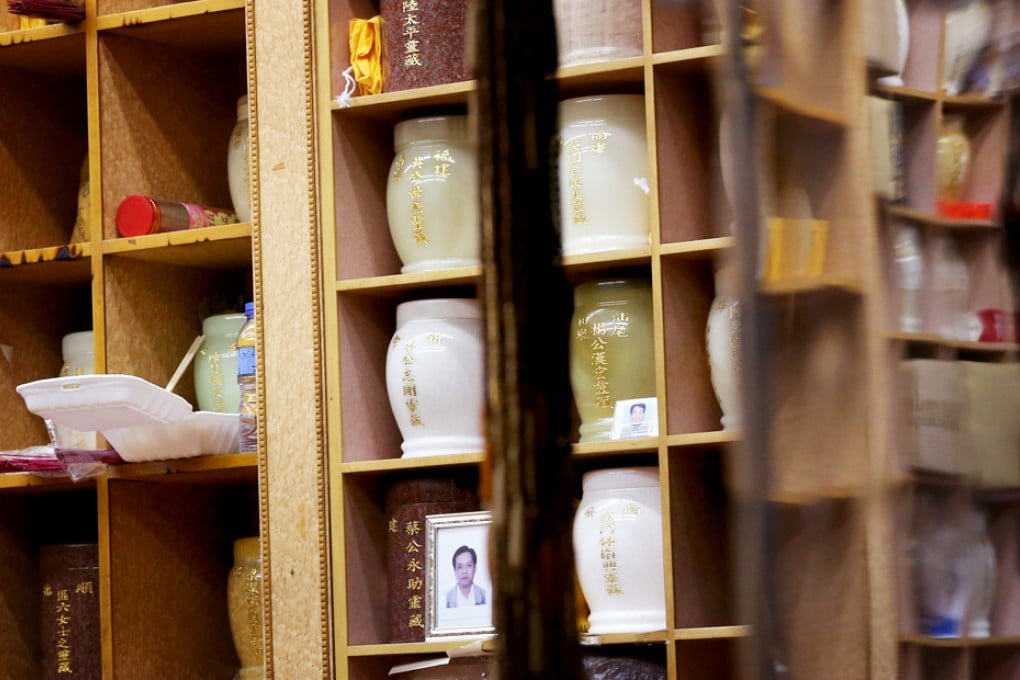Explore alternatives to creating more columbariums
If housing for the living in Hong Kong still leaves a lot to be desired, the premises for the dead are even worse.

If housing for the living in Hong Kong still leaves a lot to be desired, the premises for the dead are even worse. A chronic undersupply of public burial places has for years been a severe problem, so much so that it has fuelled the lucrative business of turning temples, industrial and commercial buildings into unauthorised columbariums, many of which are environmental nuisances or potential death traps for residents nearby. It was not until 2009 that the administration began to take the problem seriously. Meanwhile, families who cannot afford tens of thousands of dollars for a private niche for their loved ones can only leave the ashes inside funeral agencies to await a slot in a public cemetery, a wait that can sometimes last for years.
After two rounds of consultation, the government has proposed a licensing scheme to better regulate private columbariums. This is a step in the right direction. Under the bill, only licensed columbariums can trade in niche places. Those built before 1990 may be exempted on the condition that there will be no more intake. A grace period of up to six years will be given to rectify problems. Non-compliance could mean seven years in jail and a HK$5 million fine.
Residents upset by the nuisance of illegal operators near them are understandably dissatisfied with the new regime. Instead of an immediate crackdown, the government has opted for a relatively lenient approach. Some even liken it to a de facto amnesty.
Officials are to blame for acting too late. They have been unclear about how many illegal premises are operating, let alone which ones will be outlawed. With countless urns deposited across the city, a hardline approach is unrealistic. The last thing the government wants is families scrambling to relocate ashes to licensed places. The compromise appears to be a pragmatic step in light of the situation.
Licensing will prevent illegal columbariums from mushrooming further, but it does little to ease the shortage of burial places. It may even push up prices in the private market if many unauthorised operators are put out of business.
The shortage of space for the living and the dead means building more columbariums may not be a sustainable solution. While the government should lobby district councils harder to support building more such facilities, a better solution is to encourage more people to opt for scattering ashes at sea or in designated gardens.
